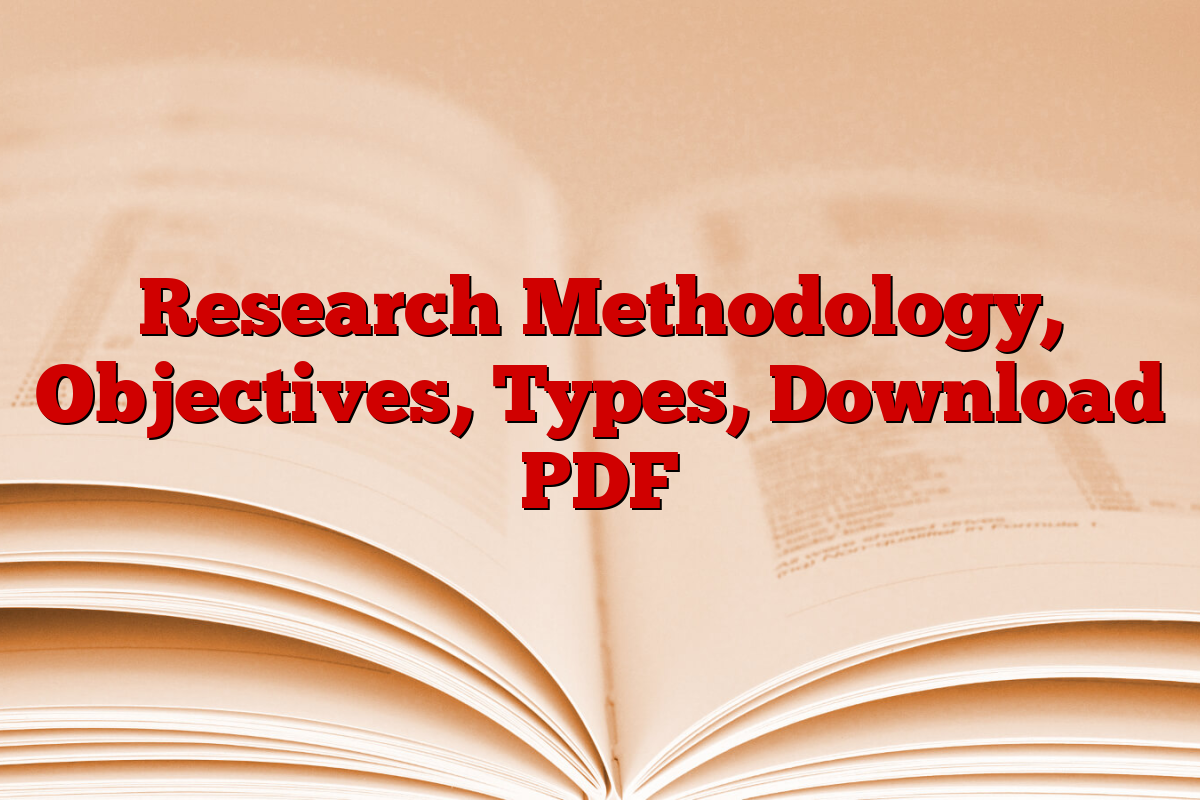Research is a systematic inquiry or investigation conducted to gather and analyze information to advance knowledge, solve problems, or answer questions. It can also be defined as the creation of new knowledge or the use of existing knowledge in a new and creative way to create new concepts and understanding. In this article we will discuss research and its related concepts.
What is research?
The word research consists of two words “re” and “discover”. Generally “re” means again and “khoj” means to find out. Research is a careful investigation or inquiry, especially discovering new facts in any branch of knowledge. Example: Research conducted on issues such as
- How did the new education policy evolve after independence?
- How has the COVID-19 disease affected the economy?
Research can be conducted with humans, animals, plants, other organisms, and inorganic substances. No matter what topic is being studied, the value of research depends on how well it is designed and conducted. A good researcher must be diligent, hard-working, open-minded and adopt critical thinking.
Research Objectives
Well-defined research objectives are an essential component of a successful research engagement. Here are some of the following objectives given below:
- To generate new knowledge.
- Becoming familiar with a phenomenon or developing new insights.
- Investigating an existing situation or problem.
- To design or create a new process or system.
- Detecting and analyzing more common issues.
- To investigate some existing situations or problems.
- To test a hypothesis or theory.
- Identifying patterns or trends related to the problem.
types of research
There are different types of research depending on many factors like objective, result and process etc. These are explained below
Depending on the objectives:
- descriptive research: The main objective of descriptive research is to define the characteristics of a particular phenomenon. It is also known as statistical research. It deals with everything that can be counted and studied. This descriptive method focuses on the “what” of the research problem. The primary methods used in descriptive research include observation, survey, and case study.
- Exploratory Research: This is generally done at the beginning of the research. It attempts to explain why and how a relationship exists between two or more aspects of a situation or phenomenon. It uses secondary data. Its purpose is to obtain background information, define terms, and clarify problems.
- Experimental: This method starts with a question related to the relationship between two or more variables. The independent variable is controlled by the researcher. And the dependent variable is measured by the researcher. The researcher manipulates the independent variable example teaching methods and measures the dependent variable (satisfaction) to establish a cause-and-effect relationship between them.
Based on results:
- fundamental: It is also known as basic research. This research is motivated by the desire to expand knowledge in a specific research area. This will increase our scientific knowledge base for research. Its purpose is to say how things can be changed.
- applied research: It is defined as research that is used to answer a specific question, determine why something failed or succeeded, and solve a specific, practical problem.
Based on logic:
- Deductive: This is also called a top-down or general-to-specific approach. It is a method of verification and instruction. And it does not provide any new knowledge. Its purpose is to test an existing theory. It involves three steps – stating the hypothesis, collecting data to test the hypothesis and finally deciding to accept or reject the hypothesis.
- Inductive: This is also known as the bottom-up approach. It gives new knowledge. It is a method of discovery and teaching. It involves three steps – observing various phenomena in the world, discovering a pattern in what is observed and finally making generalizations about what is occurring.
Depending on the process:
- Qualitative: It is a “subjective research” that explores and gains understanding of problems. The approach is bottom up. It tries to figure out how and when. The main objective is to develop understanding of human beings and social sciences to know what people feel and think.
- Quantitative: It takes an “objective” approach that explains and quantifies problems. This is a top down approach. Its purpose is to confirm what and when. This research using statistical, logical and mathematical techniques is very clear about what to do and what not to do.
Based on inquiry mode:
- Structured: This approach is usually classified as quantitative research. It is more appropriate to determine the extent of a problem, issue or phenomenon by measuring variation.
- Unstructured: This approach to inquiry is usually classified as qualitative research. This allows flexibility in all aspects of the research process. It is more appropriate to ascertain the nature of a problem without quantifying it.
based on concept,
- Ideological: It focuses on developing new ideas or theories, without necessarily collecting data. It involves the analysis of abstract concepts, principles, and ideas that are not observable or measurable. Conceptual research is often used to establish a theoretical framework for further research and to provide a basis for the development of new ideas and theories.
- Empirical: On the other hand, it is based on the collection and analysis of data. This type of research involves the observation and measurement of real-world phenomena, and the use of statistical methods to analyze the data. Empirical research is often used to test existing theories and hypotheses, gather information on a particular topic, or validate the effectiveness of a particular intervention or treatment.
In short, research is a systematic and structured approach to answering questions or solving problems by collecting, analyzing and interpreting data. It involves a variety of methods, steps, and ethical considerations to ensure the validity and reliability of research findings. Research plays an important role in advancing knowledge, solving problems and informing decision making in various fields.
Research Methodology, Objectives, Types, Download PDF
sharing is Caring!
